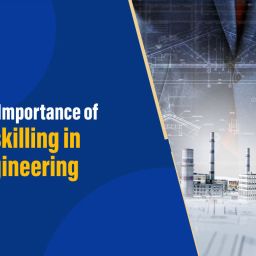
For an organization, hiring the right candidate for the job is important. However, identifying the perfect candidate is challenging and time-consuming. It means interviewing a candidate is a distinct skill that requires a set of competencies. The interview process is diverse and varies according to the role and industry. Therefore, engineers need to prepare for the interview based on the desirable position and industry demands. The best b tech IT colleges in Coimbatore help their students practice and gain knowledge on how to crack the placement interviews. Thus, this article is aimed at helping them understand the common factors that engineering companies’ hiring process looks for before selecting candidates.
How do companies evaluate engineers/ candidates?
- Skills: Assessing the candidates’ hard and soft skills is the first step in the interview evaluation process. Candidates who have the technical knowledge and can fulfill the company’s responsibilities are given first preference. When assessing a candidate’s task completion abilities, it’s crucial to consider their soft skills because these can have an impact on how they interact with managers, customers, coworkers, and clients.
- Education: Analysing a candidate’s educational history provides important information about the specialized training they have received.
- In professions, like engineering or healthcare, advanced degrees of education might be necessary to perform fundamental job functions.
- A candidate’s chances of success might not be directly correlated with his/her educational history. Before contrasting the educational backgrounds of various applicants, consider the specialized training needed for the available position.
- Academic accomplishments that stand out may indicate initiative, a diligent work ethic, and subject-matter expertise in a candidate.
- Salary expectations: You can tell if a candidate’s demands are in line with the company’s budget by comparing their salary expectations. Examine how the candidate’s desired pay compares to the salary cap the organization establishes for the position. To match the salary expectations of a highly qualified candidate, you might want to increase your budget for salaries. There are situations when you might want to offer a qualified applicant a lower salary to secure their agreement.
- Cultural fit: Assessing cultural fit is a necessary step in making a successful hire. Employers should look for professionals who can enhance the culture and productivity of the workplace. An institution’s ability to integrate a candidate into its existing cultural form can be assessed with common factors like their personality, values, and communication style.
- Response and reference: You can learn a lot about a candidate’s aptitude and drive for success in a role from their answers to interview questions.
- You can learn more about a candidate’s potential performance in a specific role at a company by posing hypothetical situations or past events to them.
- Contextualizing and contrasting the responses of several candidates can assist you in evaluating each candidate’s advantages and disadvantages.
- One of the most important parts of evaluating candidates is checking references. Obtain input on a candidate’s prior work by contacting the references they provide. A candidate may have a better chance of landing the job if several references support and validate the information they provide, such as their experiences and abilities.
- Opinions from college mentors: Participating in a candidate evaluation process can be beneficial for managers, administrative decision-makers, and other HR department staff members. Meet with members of your department and other departments where the candidate might be employed to obtain second opinions on front-runner candidates.
Common challenges while recruiting engineers:
Even if you know the common key factors that recruiters evaluate the candidate, there are challenges that every hiring manager needs to face. Let’s examine the primary challenges in detail.
- Employers are reducing their talent pools and making it more difficult to find the right talent when they continue to use outdated hiring practices such as requiring a degree, resume, and experience.
- Conventional hiring methods that depend on experience requirements and degree inflation frequently have the opposite effect. By dismissing a sizable portion of applicants who lack degrees but possess pertinent skills, companies reduce the pool of talent.
- Engineering positions usually take more time to fill because they require a high level of technical expertise. This is brought on by endless rounds of technical interviews, a disorganized hiring process, and resume screening.
- There aren’t many suitable engineering candidates available; they can pick and choose which companies to work for. Because of this, it is challenging for employers to consider the candidate’s experience, and may result in unfavorable hiring decisions.
To conclude, the process of hiring the right candidate is important for the organization’s success. It involves a combination of effective interviewing techniques and resume analysis for making informed decisions. Secondly, technology supports hiring managers in automating the recruitment assessment. Therefore, the advice for the students pursuing Coimbatore Best Colleges for Engineering is to enhance students’ skill development, gain experience through internships, give themselves a competitive edge, and understand engineering companies’ hiring process to acquire their desired position.















